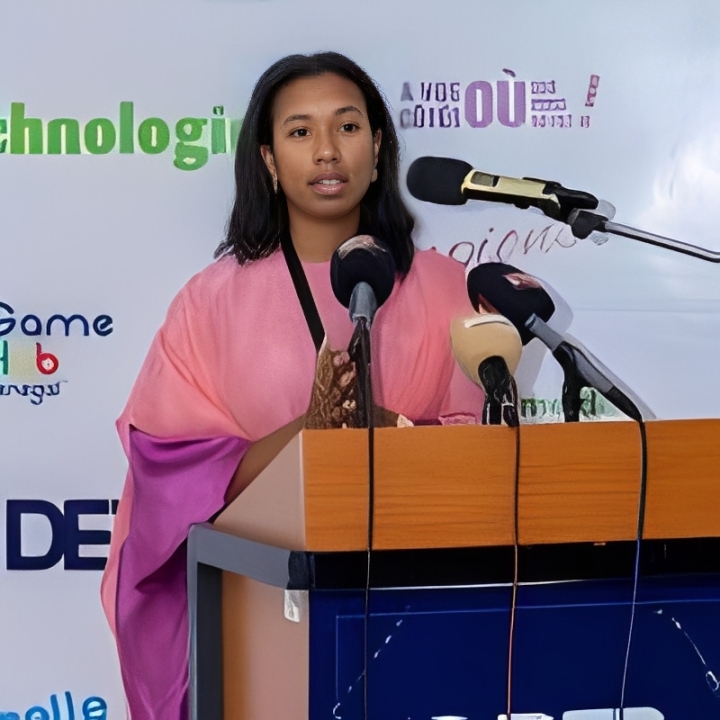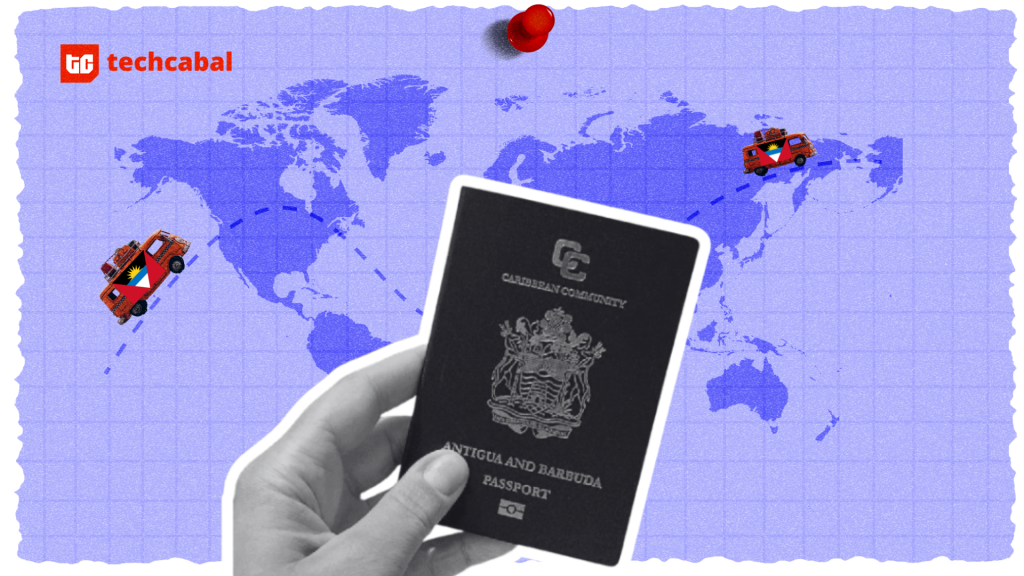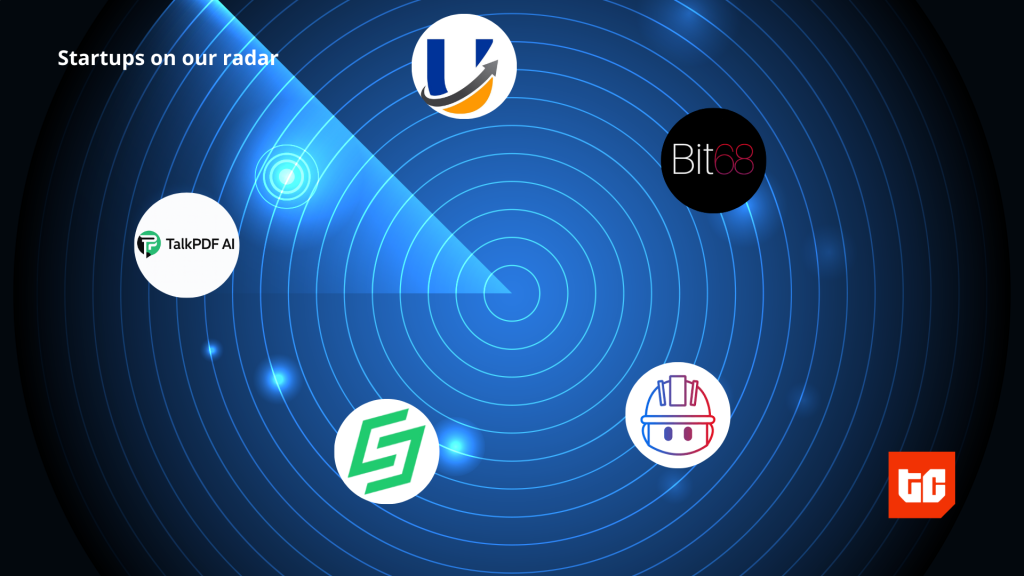A presentation by Esigie Aguele, Co-founder/CEO, QoreID, at the inaugural Inclusive FinTech Forum held in Kigali, Rwanda. June 20-22, 2023
Introduction
Good morning, everyone. My name is Esigie Aguele, I’m a Nigeria-based tech entrepreneur at QoreID, a VerifyMe company. My co-founder and I have built a digital identity platform that makes it easy for people in emerging markets to get access to financial inclusion products. Our platform is already being used by over 200 FinTechs generating over 20 million financial inclusion decisions annually, and is relied upon by banks, lenders, and insurance companies for ID verification and customer analytics. We’re excited to see how it’s helping to transform lives.
I’m here today to talk to you about building for change and how I believe activism and a focus on effecting social change can be a foundation for any successful entrepreneur, especially in developing markets.
This talk is about my accidental activism. I hope to give insight into the challenges of building businesses in developing ecosystems so that we can embrace characteristics beyond the conventional or traditional ones expected from founders. These characteristics are the root needed for business success and ultimately for social change – which is why most of us are here. Many of us are increasingly focused on not just being successful but on using business as a force for good and for sustainable development.
Unintentional Activism
I believe very strongly that when you are building for change in a so-called emerging market, you are more of an activist than you know. I call this unintentional activism because many of us don’t think of social activism as part of the makeup of an entrepreneur. However, in building technology solutions that address systemic challenges such as digital identity access, like we do at QoreID, we found that we had to also be proactive and intentional in building the ecosystem to support and grow our work. I believe that this is the only way to achieve long term sustainable growth for our business.
Emerging market founders are private sector change activists, not just building for scale and returns, but using passion, courage, and the ability to represent the interests of a sector with regulators as part of the important skills. This is among other conventional skills such as engineering or financial management. When we see ourselves as agents of change, we unlock an additional set of tools and advocacy approaches that are ultimately great for business.
About Me
So why do I have this picture? It is because, for me, this is a picture of me being a little bit of a student activist in Washington DC where I attended Howard University, a historically Black University with a rich history of activism, discourse and engagement around civil and human rights issues in the United States.
I attended the school during the period of military rule in my country Nigeria, and therefore felt a strong need to represent and illustrate our culture and our fight for democracy – and also really to provide a counter-narrative of who we were. In this photograph, I am representing Nigeria during Student Day. Much like I now have to carry a flag for my ecosystem today.
Through my leadership at the African Student’s Association and my broader experiences interacting with historical civil rights figures, I developed a strong sense of my own place as an every day activist and agent of change. I immersed myself in books about the lives of Martin Luther King Junior and Nelson Mandela. I developed a sense of the ways in which even I – a student – could leverage my voice and platform to build community and mobilize others for change.
As is the case with many of us, I finished school and thought I was done with that form of activism. I had become an engineer, worked at major corporations and moved up in my career where the focus mostly was on skillset – are you a good engineer, do you have the management skills set to carry out the job, do you have professional integrity?
But within my first year of moving back to Nigeria to build QoreID, my cofounder and I began to work within our ecosystem and realized that we weren’t just building a business, we had to advocate with regulators within our ecosystem to establish digital sovereignty, ensure national data is seen as a critical asset, and even push to establish an association to represent all our interests as Nigerians.
We had to socialize the mindset that regulation should be seen as stimulus, not a means of gate keeping. I found that along with writing software design documents and managing teams, I was conducting training on enterprise architecture in government, contributing to draft regulations, demanding change in regulation when it would impede or hurt my industry. I once had a regulator tell me, “we expect you to jump through our window at some point when we pass regulation that doesn’t work for you.”
I ultimately began to engage, advocate and often fight not just on our company’s behalf but also really for our ecosystem – joining hands with other players in the space, and yes, with competitors — to ensure that we had a fighting chance of running and scaling our businesses. Recognizing the need to create awareness and discourse in our space, we partnered with Dalberg to publish the first report on the Digital ID space in Nigeria, and worked on other initiatives to educate and socialize the ecosystem and community on the pillars of financial inclusion.
I began to realize that I was calling on my old strengths to bring me courage. That our success wasn’t just about solutions architecture and operations and scaling, but about representing our vision every day, not just in the private sector. In an emerging market, what you are building is bigger than the sum of its parts. This freed me. I began to accept myself not just as a co-founder, an entrepreneur seeking return on investment, but as an activist for my ecosystem.
If activism is defined as the practice of taking action to bring about change whether social, political, or environmental, then that’s what we are. And if you look around, at the evolving discussions around business education and practice, there is an increasing awareness of the need to intentionally bring about this awareness in entrepreneurs and managers that business can and should be used for good and be seen as a key development priority.
Lessons and Key Take-aways From the Journey So Far
As we continue our journey, there are some key emerging lessons that have resonated with me and that I would like to share here:
Lesson 1: Adapt and Learn. You cannot be selective about what you choose to overcome everyday. Be open to a different type of adaptability. Continuing to operate in the ecosystem, I realized that we had challenges. While we were building products, we had a relatively unclear stand on digital sovereignty and needed to change the mindset on how we looked at data. We did not really have regulation for this at the time. We do now.
Lesson 2: You can’t build your business without building the segment of your eco-system your business will live in. Engagement and participation is not optional.
Lesson 3: Advocacy and Influence. Advocate for your cause by using your voice, influencing public opinion, and advocating for policy changes. Then engage with decision-makers, policymakers, and stakeholders using evidence-based arguments and persuasive techniques to drive change at various levels. But then, you cannot do it alone because the ecosystem impacts not just you.
As we continued to advocate, we realized that we had more success when we were able to come together as a group. We eventually formed an association of Nigerian operators and had great success in engaging our government to establish some kind of criteria for operation and a way forward to work together on regulation. The lesson I took from that is that your competitor is your partner. You are not going to change the ecosystem alone – a difference from developed markets where you can build your product and not have to talk to your competitor. In the developing market, you don’t have that luxury.
I never set out to be an activist. I just wanted to build a successful tech company. But as I’ve gotten to know more about the challenges facing people in emerging markets, I’ve realized that my work has a much bigger impact than I ever imagined. We’re not just building a product, sometimes you need to build a movement to go along with it. We believe that everyone has the right to a digital identity. It has to be secure, and all countries need to set their own boundaries and we’re committed to making that a reality.
We have found ourselves working with governments, businesses, and NGOs to raise awareness about the importance of digital identity. We’re also developing educational resources to help people understand how to use their digital identities.
We believe that digital identity and fair credit scoring is a powerful tool for change. It can help people escape poverty, improve their health, and access better education. It can also help to promote democracy and good governance.
We’re excited to be a part of this movement, and we’re committed to using our technology to make a difference in the world.
Some Messages to Share:
To entrepreneurs:
You have the power to change the world. You have the skills and the resources to build solutions that can address the challenges facing people in emerging markets. I encourage you to use your skills and resources to be an accidental activist. Together, we can make a difference.
What I learned is that in building in emerging markets, activism is the root, your start-up is the tree, and societal change is the fruit.
Thank you.
———
Esigie Aguele is the Co-Founder and Chief Executive Officer of QoreID, a VerifyMe Nigeria company. He is at the forefront of driving financial inclusion in Nigeria and Africa by building products that connect businesses to trusted identities and customer analytics. Aguele is a seasoned Enterprise Architect and business transformation expert with almost 20 years of experience in building products and enterprise architecture across sectors.










